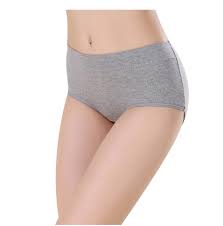You probably don’t worry about your underwear the same way you worry about your clothes. However, do you know that less concern of your underwear put your lady part (vagina) in trouble?
here are mistakes you should avoid in underwear:
Wearing Underwear to Bed
This is a matter of personal preference, but when you look at it from the perspective of breathing and airing things out, you should sleep without underwear. Going to bed commando is not a bad idea because it prevents yeast infection and vagina inflammation. Trapped moisture can lead to bacteria and even yeast infection, which 24/7 wearing of panty cause. Your vagina needs air and allowing that area to get air keeps it dry and clean. You can try it for a week and see the difference and health benefit of it.
Too Tight Underwear
Raquel B.Dardik, M.D, clinical associate professor, Department of Obstetrics and Gynecology at NYU Langone Medical Center stated: “not only is too tight underwear unflattering but it also promotes vagina irritation and chafing of the skin, especially if you are post-menopausal and for menopausal women, their vagina wall tends to be thin”. It is preferable to get loose and free underwear that can cause air to enter than too tight underwear.
Synthetic Fabric and Silk
Cotton underwear might not sound pleasant and sexy to you, but it is the best and healthiest. According to Donnica Moore, M.D, she stated that if you must wear synthetic fabric underwear, you should choose a pair that has a cotton-lined crotch. You can wear your silky panties for special occasions that won’t let it stay long. Also, Dr Dardik stated that “most underwear that is available is fairly breathable but as far as it has a cotton liner where the vagina area is”, it is good because it prevents yeast infection.
Thongs
If you have the propensity to get a yeast infection, thongs will make it increase. They are an unusual transporter of bacteria from the back to the front, says Dr Moore. According to Dr Dardik; “thong underwear can be irritating because it has more contact with the vaginal and vulval area”.
Dr Dardik stated that menopause changes your Ph making you less likely to get a yeast infection and bacterial infections.
The medical information provided in this article is provided as an information resource only. This information does not create any patient-physician relationship and should not be used as a substitute for professional diagnosis and treatment.
Source: Guardian Newspaper




